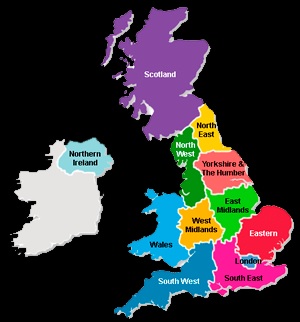Colchester Fabians, Alex Mayer MEP, Sir Mick Jagger and The Possibilities Of Hope
Friday 30 June, 2017 Written by Simon Collyer Alex Mayer MEP.
Alex Mayer MEP.
Simon Collyer, the ABC founder has been appointed press officer of the Colchester Fabian Society which has just held their AGM.
The Fabian Society was funded in January 4, 1884; 133 years ago and was an early version of whar we now know as a 'think-tank'. As one of the founding organisations of the Labour Representation Committee in 1900, and as an important influence upon the Labour Party which grew from it, the Fabian Society has had a powerful influence on British politics. The Fabian Society founded the London School of Economics and Political Science in 1895 "for the betterment of society", is now one of the leading institutions in the world, an incubator of influential politicians, economists, and journalists.

Image: Sir Mick Jagger was of course an LSE student.

Following the AGM members were given an invigorating talk by Alex Mayer MEP. There are 73 UK MEPs. They are elected in Great Britain and Northern Ireland. Other EU member states elect MEPs from their countries. Elections take place every 5 years and the next elections, if held, would be in 2019. European Office Unit 5, ESpace South 26 St Thomas Place Ely, Cambridgeshire CB7 4EX.
The UK is divided into 12 electoral regions made up of the nations and regions of the UK. Each region has between 3 and 10 MEPs and each MEP in a region represents each person living there. For example, if you live in Cambridge, all 7 Eastern region MEPs represent you and you can contact any or all of them. If you are not sure, please telephone 020 7227 4300 for more information.

Ms Mayer MEP is a keen ‘Remainer’ and Alex gave an excellent talk about the future of the UK in Europe.
One worrying point highlighted is that EU countries draw up and implement national programmes for the management, including the disposal, of all spent nuclear fuel and radioactive waste generated on their territory. Most concerning is that having withdrawn from the EU, the transport of nuclear waste could once again become an issue. There were widespread protests about the transport of this waste by rail and road back in the 70's and released from EU agreements there could be a slackening of safety standards is a concern?
BREXIT is vastly complicated matter and this was just one of many concerns that public will be faced with.
It was another very successful year for the Colchester Fabians with Chairman Maurice Austin, his number two Tim Young, with the efforts of members and supporters will be continuing to build the organisation, against a backdrop of a 20% uplift in Colchester of the Labour vote. Heady times indeed.
In the meantime, in Australia. The Fabians are also getting some Corbyn inspired motivation.
Andrew Giles, Federal Labor Member for Scullin and Shadow Assistant Minister for Schools wrote about Jeremy Corbyn's surprise electoral result in the UK and the possibilities of hope.
Jeremy Corbyn, And the Possibilities of Hope
A week is a long time in politics. Just ask Theresa May.
Better still, ask Jeremy Corbyn. Since surprising the political establishment by becoming Labour Leader in 2015 Mr Corbyn has been derided, undermined and also discounted by his conservative opponents.
Thankfully, he persevered. Under his leadership Labour offered Britons hope, underwritten by a set of policies which squarely responded to a deepening inequality compounded by Tory austerity. Jeremy Corbyn clearly spoke to this agenda from the heart.
Whatever else Mr Corbyn might be seen as, he is most certainly consistent and driven by values. This was presented as a flaw; it has emerged a virtue.
Especially in the context of the political contest in the UK.
Theresa May, became Prime Minister after Britain chose Brexit – despite backing Remain. She called an election three years early, without meaningfully explaining this decision, or its consequences for voters. Her performance through the campaign showed her to be without purpose as well as opportunistic and deeply cynical. When pressed on controversial aspects of her manifesto, she changed tack – without indicating that she’d changed her mind.
Very Malcolm Turnbull.
While Mr Corbyn had a compelling story to tell, which he told with conviction. Labour’s policy manifesto deserves comment. Not because it was a deeply radical document: it wasn’t. In articulating a clear sense of the role of the state in rebalancing economic and social relationships it represented more of a continuation of the policy agenda proposed by Ed Miliband than a deviation from it.
But there were some important differences. Firstly, context: deepening inequality, coupled with a continuing Conservative commitment to trickle-down economics. Secondly, a preparedness to reject the neoliberal fiscal straightjacket on spending. And thirdly, the bold way in which Labour’s alternative was presented, as adding up to an argument for fundamental change to how Britain works – for the many, not the few, of course.
In an economy where too many Britons were being left behind as the wealth of a privileged few grew enormously, should it be surprising that this message resonated?
Too often when we speak of ‘credible’ policies what is meant is that they fit in with the sort of neoliberal prescriptions that crowd the opinion pages of the Australian. Like saying that there’s no alternative to $65 billion in company tax cuts at a time of record corporate profits, when Labor outlines just such an alternative.
There’s another kind of credibility, though. It’s sincerity – believing in things, unswervingly. It was this which struck me two years ago as the lesson to be learned from Mr Corbyn’s leadership ascension (though I confess I wasn’t as confident as I should have been in his prospects). His project was politics with purpose, offering the possibilities of rebuilding and reclaiming tarnished institutions so that these might be agents of real change. It’s the change that matters, the commitment to realising a vision of a better society.
This is why the hollow claims of Turnbull and Morrison to the mantle of budget fairness fell away so quickly, against Labor’s record and our reason for being.
In the ALP we should take heart, as well as inspiration from the performance of our British comrades. And we can do more than just emulate them. Under Bill Shorten’s leadership we have build solid foundations, at least comparable to those contained in UK Labour’s manifesto in terms of responding to this social democratic moment. We have committed to policies on tax which challenge wealth inequality, and offer young people a real chance to own their homes. To investments in education which would open up opportunities. To a decent social wage, as well as secure work.
The Malcolm Turnbull who promised exciting times has shrunk to a husk.
It’s Labor that is offering hope. It’s Labor that recognises that growing inequality is the challenge that government must respond to. It’s Labor that has a sense of purpose. A light, on the hill.
Of all the statistics that emerge from the UK poll, the one that strikes me the most is the engagement of young people – for Labour.
The experts doubted that these people would vote. After all, they hadn’t, in the past.
But, in the past, their concerns had not been listened to, much less effectively articulated. In the past, they hadn’t had a government which had deliberately foreclosed on their futures through provoking a referendum which was in large part a conflict between generations.
In the past, their activism hadn’t been effectively harnessed. In place of fatalistic despair, hope proved a terrific motivator. As it had been when Jeremy Corbyn surfed a wave of enthusiasm to the Labour leadership.
For all the crude caricatures of Mr Corbyn as a relic of politics past, the fact is that he boldly mobilised those most concerned about the future. He helped build a movement for change, through making the case for change.
Here, in Australia, we are doing the same thing. And we can win.

Image: Australian Federal Labor Member for Scullin/Shadow Assistant Minister for Schools
1 comment
Leave a comment
Make sure you enter all the required information, indicated by an asterisk (*). HTML code is not allowed.
Join
FREE
Here










